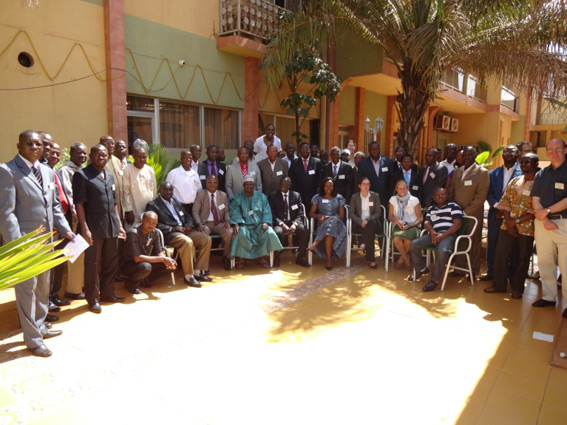The Central and West Africa Programme of the International Union for the Conservation of Nature (IUCN/PACO) jointly organized a regional workshop with the Water Resources Co-ordination Centre (WRCC/ECOWAS) on the implementation of the ECOWAS recommendations on large water infrastructure in West Africa: the social dimensions. Supported by the International Institute for Environment and Development (IIED), the overall objective of this technical workshop was to share West African experiences of displacement/resettlement and benefit-sharing with local communities, with a view to developing consensual tools and approaches for implementing the ECOWAS recommendations.
The realities of each country were analyzed specifically in relation to the above-mentioned recommendations and measures and the workshop sought to identify and capitalize good practice in the form of advice for the future. Mainly, it was to integrate the affected communities as partners and ensure that they benefit directly from the dam throughout its lifetime, and grant the benefits generated by the dam (farmland, electricity, drinking water, grazing, fisheries, etc.). The participants to the conference focused discussions on the access to the benefits of dams by local population (especially irrigated land and electricity), traditional uses and intangible and cultural assets concerned by the process of displacement/reinstallation, identify legitimate representatives of the communities who are able to conduct negotiations and sign the agreements.
The workshop was planned in the interests of maintaining the dynamics of regional dialogue within the framework of the Global Water Initiative (GWI) and the Poverty Reduction and Environmental Management Initiative (PREMI).
